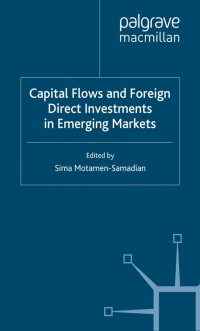Question
You are approached by an entrepreneur couple who seeks advice on their self-managed superannuation fund (SMSF) with a balance of S2 million. They plan to
You are approached by an entrepreneur couple who seeks advice on their self-managed superannuation fund (SMSF) with a balance of S2 million. They plan to retire in 10 years and intend to keep their SMSF running at least for another 25 years. The investment portfolio will invest predominantly in Australian Equity, World Equity, Australian Unlisted Property and Australian Fixed lncome & Cash as requested by the clients. The portfolio performance is evaluated over 3 years (the review period) against a benchmark portfolioin order to analyse the effect of differing asset allocations on portfolio risk and return, it is necessary to generate asset assumptions. ln many cases, these assumptions are based on historical return data, which leads to choices about the data set and how it is used.You decide to adiust historical data based on expected returns following a particular method and use these adjusted returns as part of your bootstrap analysis to generate portfolio measures. You have quarterly and yearly historical returns for all asset classes dating back to 1980 except Australian Unlisted Property. The quarterly and yearly historical returns for Australian Unlisted Property start from 2005.
ldentify and discuss one important trade-off related to the asset class of Australian Unlisted Property you have to consider when deciding the data period (the length of the historical return period) and data interval (the frequency of historical data you draw on)in the quantitative analysis. Within your response, you are expected to explain the appropriateness of your choices for conducting the bootstrap analysis and how it is inline with the client's circumstances
You are approached by an entrepreneur couple who seeks advice on their self-managed superannuation fund (SMSF) with a balance of S2 million. They plan to retire in 10 years and intend to keep their SMSF running at least for another 25 years. The investment portfolio will invest predominantly in Australian Equity, World Equity, Australian Unlisted Property and Australian Fixed lncome & Cash as requested by the clients. The portfolio performance is evaluated over 3 years (the review period) against a benchmark portfolioin order to analyse the effect of differing asset allocations on portfolio risk and return, it is necessary to generate asset assumptions. ln many cases, these assumptions are based on historical return data, which leads to choices about the data set and how it is used.You decide to adiust historical data based on expected returns following a particular method and use these adjusted returns as part of your bootstrap analysis to generate portfolio measures. You have quarterly and yearly historical returns for all asset classes dating back to 1980 except Australian Unlisted Property. The quarterly and yearly historical returns for Australian Unlisted Property start from 2005.
ldentify and discuss one important trade-off related to the asset class of Australian Unlisted Property you have to consider when deciding the data period (the length of the historical return period) and data interval (the frequency of historical data you draw on)in the quantitative analysis. Within your response, you are expected to explain the appropriateness of your choices for conducting the bootstrap analysis and how it is inline with the client's circumstances
Step by Step Solution
There are 3 Steps involved in it
Step: 1

Get Instant Access to Expert-Tailored Solutions
See step-by-step solutions with expert insights and AI powered tools for academic success
Step: 2

Step: 3

Ace Your Homework with AI
Get the answers you need in no time with our AI-driven, step-by-step assistance
Get Started


